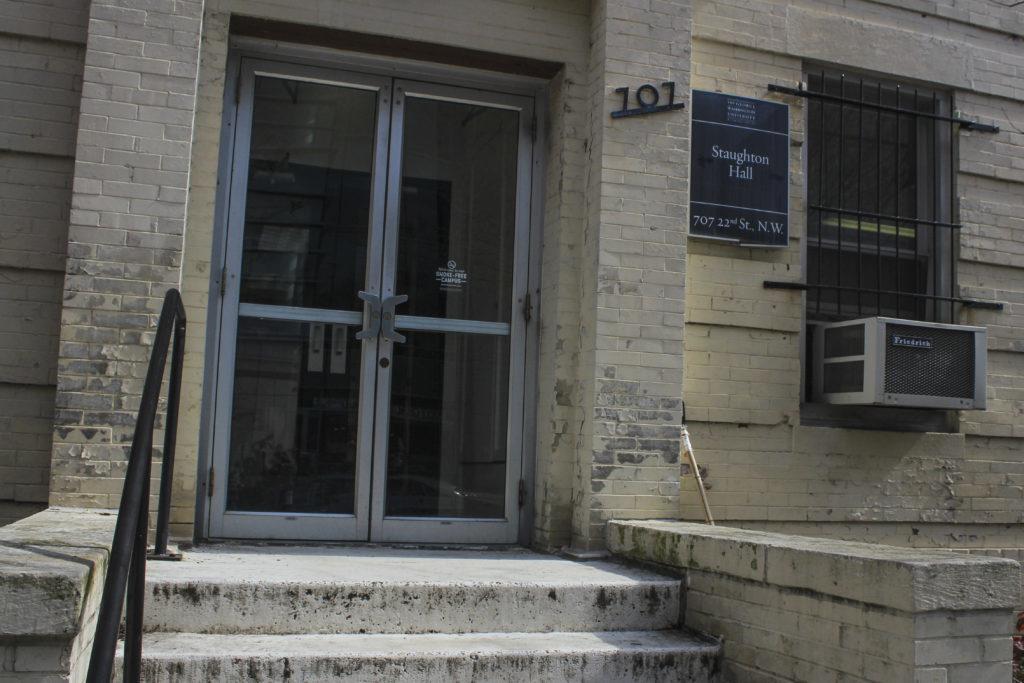The physics department will host an undergraduate conference for more than 100 women in physics next January.
The Conference for Undergraduate Women in Physics is designed to support and encourage women and members of minority groups to pursue physics, a field that is generally male-dominated. The American Physical Society recently approved the University as a conference site, along with 11 other universities across the U.S. and Canada.
This will be the University’s first time hosting an undergraduate women’s physics conference.
Evangeline Downie, a professor of physics and an associate dean in the Columbian College of Arts and Sciences, said the conference will be held the weekend before classes start in the spring semester. The weekend conference will feature keynote speakers, panels and workshops, she said.
“It’s a lot to organize but it’s really worth it,” Downie said. “I want it to be a conference that’s a really positive experience for all of the young women that come, that it encourages them and provides opportunities for networking and for career development.”
Downie said the conference will likely take place in the Science and Engineering Hall unless the renovations of Corcoran Hall are complete by January. The event will be partially funded by the APS – based on the number of female students that attend – and partially from donors, she said.
She added that the faculty and graduate students in the department will plan the conference and prepare presentations.
Female physics students at GW have attended conferences at other universities designed for undergraduate women in the past, one of which Downie attended, she said.
“We have several girls that have gone, and every single one of them has said it’s been a positive experience,” Downie said. “From a career perspective it’s useful and from a perspective of meeting other people that look like you.”
Downie said GW’s physics program is doing better than the national average in numbers of female students. Women make up roughly 20 percent of physics majors in the U.S., according to data from the APS. In 2007, women made up about 17 percent of the physics undergraduate students, but the number rose to about 35 percent in 2016, she said.
She added that the committee is hoping to bring students from community colleges in addition to four-year colleges.
Chryssa Kouveliotou, an astrophysics professor, said the conference will help students decide what their next step should be by providing them with exposure to different career options and graduate schools.
“It opens channels of communication between schools and students,” Kouveliotou said. “The students actually also have input from other students who have more information and experience.”
Kara Zielinski, a junior studying biophysics and the president of the Society of Physics Students, attended a conference for undergraduate women in physics at Virginia Tech in January and is on the planning committee for next year’s conference. She said the committee will emphasize a diverse range of career options at the conference next winter because physics students have a broad range of options beyond attending graduate school.
“It almost alienates the people who want to go into industry or maybe don’t want to go to grad school right away,” Zielinski said. “We’ve been thinking about trying to get more policy and industry people in so it’s more a balance for everybody else.”
Renee Michelle Goertzen, the education programs manager at the American Physical Society and head staff member for conferences of undergraduate women in physics, said the University applied last fall and was selected as a host this winter. The application considered the breadth of the physics program at GW and the willingness of the department’s faculty and graduate students to participate.
She said that the APS surveys students before and after the conference, and that attendees usually feel more confident at the end of the weekend.
“Almost all women leave the conferences with an increased sense of community, so the feeling that they belong in physics and that the conferences elevate their sense of self as physicists,” Goertzen said. “So that’s really important because you’re raising feelings that people belong in physics.”





